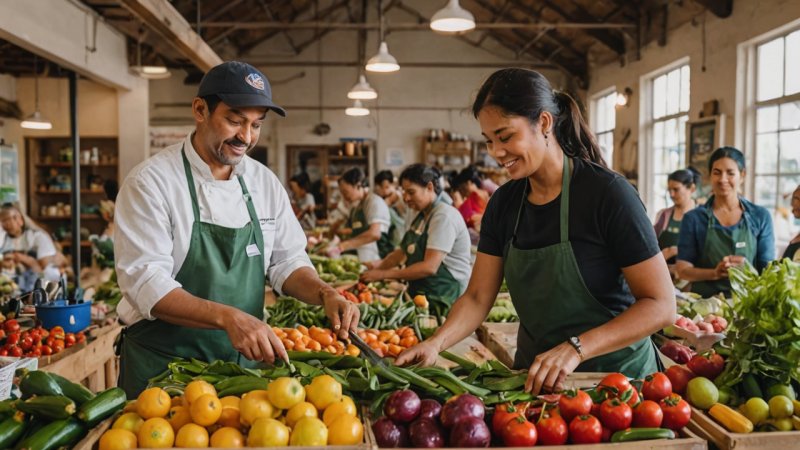Traveling is not just about visiting landmarks; it’s also about immersing yourself in the local culture, and one of the best ways to do this is through food. However, as we explore new cuisines, it’s crucial to consider the impact of our dining choices on the environment and local communities. In this article, we’ll delve into how to experience local cuisine sustainably during your travels.
When you arrive in a new destination, a good starting point is to seek out local markets. These markets are often the heart of the community and offer a treasure trove of fresh, seasonal ingredients. By purchasing food from local vendors, you are supporting the local economy and reducing the carbon footprint associated with transporting goods over long distances. Additionally, many vendors are happy to share their knowledge about the products they sell, giving you insight into the local culinary traditions.
Another great way to experience local cuisine sustainably is by dining at restaurants that prioritize farm-to-table practices. These establishments source their ingredients directly from local farms, ensuring that the food is fresh and in-season. Not only does this support local agriculture, but it also minimizes the environmental impact of food transportation. Before you travel, do a little research and make a list of restaurants that align with these sustainable practices.
Consider participating in a cooking class that focuses on traditional local recipes. Many cooking schools offer classes that use locally-sourced ingredients, allowing you to learn about the culinary traditions of the area while also contributing to sustainable practices. This hands-on experience not only deepens your connection to the local culture but also empowers you to bring some of that culinary knowledge back home.
As you explore dining options, don’t forget to look for community-supported agriculture (CSA) programs or farm tours. These initiatives often provide opportunities to taste food directly from the source, and many include meals prepared with fresh ingredients. Engaging with local farmers fosters a deeper understanding of the region’s agricultural practices and highlights the importance of sustainable food systems.
Lastly, always be mindful of food waste during your travels. When dining out, consider sharing dishes to minimize leftovers, or be sure to take home any uneaten food if it’s safe to do so. Some restaurants may offer to-go containers or even composting options, so don’t hesitate to ask. By being conscious of your consumption, you contribute to reducing food waste and promoting sustainability.
In conclusion, experiencing local cuisine sustainably is achievable with a little effort and awareness. By shopping at local markets, dining at farm-to-table restaurants, participating in cooking classes, engaging with CSAs, and minimizing food waste, you can enjoy the rich flavors of your destination while also supporting its community and environment. Remember, every meal is an opportunity to connect with the culture of the place you’re visiting, and making sustainable choices enhances that experience.






